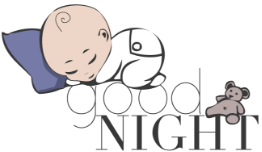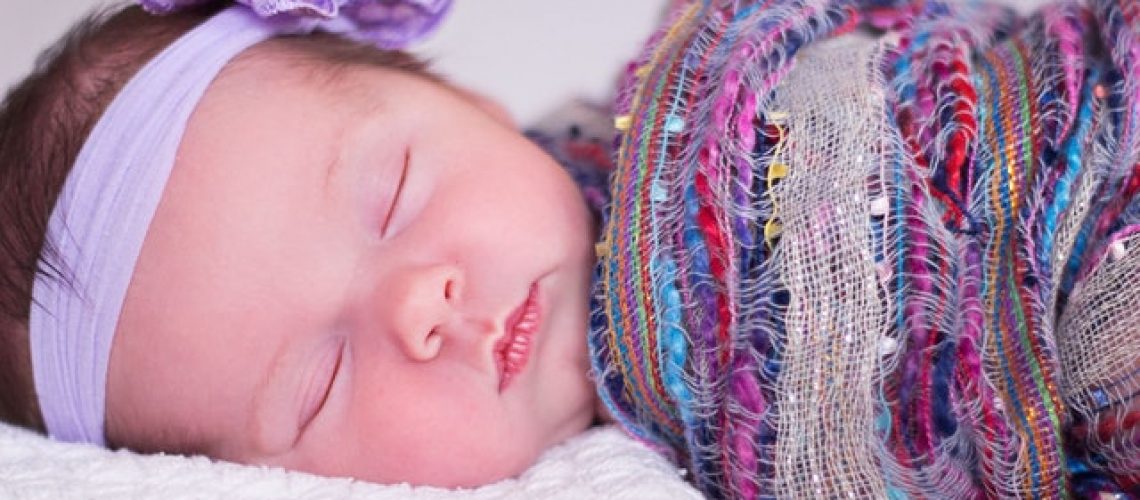With the stigma around the cry-it-out method – which is what the majority of parents believe sleep training your baby to be – there is no wonder that moms and dads are right to question whether sleep training can harm their baby.
In South Africa, the controversial “sleep training” debate has heated up considerably over the last few months. With so many puritan views on the subject, it’s difficult to discern which information is objective, honest and suitable for everyday families.
I am afraid that the vast amount of knowledge and information on the internet has also not helped parents, because there’s no way to judge who is right and who is wrong!? And the “shock effect” that is so popular on social media has caused all of us at one point in our lives to share articles titled “Ferber sleep training harms baby” and the like on social media without even understanding the context or information contained in the article.
There are two very different spheres of parenting styles that influence the heated debate on baby sleep trainers. On the one hand you have the attachment approach which is applauded by parents who don’t believe mom and baby should ever be separated and on the other hand you have the parent-directed approach, which is comforting for the parents who know they function better on a good night’s sleep. Essentially, it’s the parent-led or baby-led mommy mantra… And everyone wants to pitch in defending their views on the subject.
What is sleep training?
Knowledge is power, and it is even more powerful in the paediatric sleep debate. I also honestly believe that most of us have a deeply skewed view of the nature and process of sleep training. Sleep training is not equivalent to crying but sleep training might include crying.
Sleep is a skill and a discipline. It is us (as parents) that often interfere with the process of our children learning how to sleep well (propping our kids up with bottles, feeds, dummies, rocking them continuously, etc.). Think about a child who’s learning to walk: if your child is always placed in a walking ring and is never given the chance to explore or pull themselves up against a couch, how will they learn how to walk? However, in the same breath, you don’t need to explain to your child which muscles to flex for them to walk by themselves. They’ll figure this all out in a safe environment that allows them to practice. In much the same way, a safe sleep environment, with a parent who respects the need of the child to learn to sleep, will be rewarded with a child who learns the skill and the discipline to do so.
I prefer the term sleep coaching or sleep consulting rather than sleep training. It is not supposed to be a sleep training technique or approach, but rather a whole eco system and holistic viewpoint of creating an environment which suits your parenting style and allows your baby an optimum environment for sleeping through the night.
Can crying harm my baby?
Maybe one of the biggest reasons for the “I hate sleep training” slogan is that parents believe sleep training involves crying. When I was a first-time mom, I believed that baby only cried when he was close to dying. Hence, it was the reason I was in a complete panic the first time I took my baby home and he did not stop crying!
However, babies cry. Period. Studies suggest that a newborn baby cries on average for 2 to 3 hours a day! All babies cry. Sometimes because they are wet, cold, hot, uncomfortable, unhappy and/or hungry, and sometimes just because they are babies. Babies cry. A lot. To expect your child to never cry is unrealistic and unnatural.
The truth is this – no amount of crying will make a baby sleep without first addressing the fundamental building blocks of excellent quality sleep. Without addressing those, you will only cause unnecessary heartache for yourself.
A client recently asked us to help her sleep train her 9-month-old baby. After a more thorough analysis it became clear that the baby was underfed, and this was the reason for it not sleeping through the night. Once we addressed the nutritional issues this baby slept like… well… like a baby.
Use your instinct as a mother and more than anything your good common sense! Will leaving your 18-month-old (after you’ve addressed all his/her needs) to cry for 10 minutes rather than responding to a tantrum, undo the love and attentiveness you’ve given her the rest of the day (or life!) and harm her? Of course not. Will responding to your toddler who needs your attention right before you breastfeed your second baby and as such the second baby cries a little, psychologically damage her? Never! So how can a few minutes of crying harm your child? It simply makes no sense.
The problem comes in when parents read the wrong information on the subject, and leave their children to cry for hours, night after night, without any improvement or success and then they start doubting the process and proclaim that sleep training does not work. It is highly likely that the child was never properly “sleep trained” in the first place.
(And to support this statement, about 85% of the clients that Good Night Child Sleep consultancy work with have done some form of “sleep training” before without success!)
What sleep training method should I use?
Does that mean then that one sleep training method is better than the other? The truth is that there are many ways to get to same place. You can walk, run, crawl or fly – it all depends on your preferences and your situation. Remember that sleep training a three-month-old is vastly different to sleep training a 9-month-old and the question that you should ask yourself is NOT whether you can allow your child to cry. No child’s needs need to be ignored. You should always emotionally respond to your child as much as you can.
What about the sleep training studies?
There is no definite concrete evidence that proves without a reasonable doubt that sleep training can in any way harm your child. The studies that have been done are in most parts inconclusive due to the complicated nature of sleep training itself. If a child was sleep trained as a baby and later in life has attachment issues was it because of the sleep training or because of an unresponsive parent? How do you prove that? As with most studies, these reports have limitations; such as checking a child’s cortisol levels. Who is to prove the raised cortisol levels are because of the crying and not the needle that was put in the baby’s arm to test the hormone level? There are as many “studies” in agreement of sleep training as there is against it. I encourage parents to read the studies, the methods used, the sample data and the limitations of any report. Everyone is a baby expert and baby sleep expert these days – you honestly cannot believe everything that you have read.
So, should I sleep train my child?
Unfortunately for some it is yes, and for some it is no. We do not believe that one type of parenting is better than the other. You have been chosen as your child’s parent for a reason and thus you should always trust your instincts above all else. While we are not fond of sleep training, we are fond of sleep. If your family co-sleeps for example and everyone in the family is happy with the arrangement, and each family member is getting adequate amounts of quality sleep, then how can anybody advise you differently? However, we believe in the fundamental value of uninterrupted consolidated sleep for everyone in the family, and for this reason we advise you on how to develop a routine and sleeping schedule to help your child to learn how to sleep well. Sleep training should however be the last resort – make sure all the fundamentals are in place such as nutrition, health, emotional wellbeing and attachment before trying any behavioural modification with adjusting sleep associations.
To conclude, by understanding what sleep training is, you can understand what it is NOT. And so, if you believe that just merely allowing your child to scream for hours on end and closing the door will magically make your child sleep better, I’m afraid I must burst your bubble. Sleep training is not a magical answer to all sleep problems but in some cases, it will be the difference between a mom’s recovery from post-natal depression or saving a broken marriage. Conclusively, to make a statement that sleep training will harm your baby is in most part incorrect. Unseemly. Unnecessary. Stop the mother’s guilt. Be informed and trust yourself as a mother – you’ve got this!
By Petro Thamm
#sleeptraining

